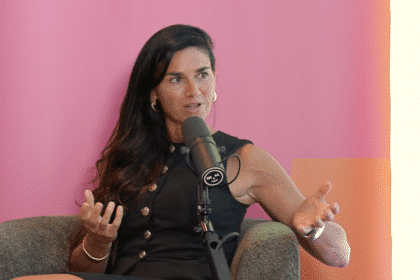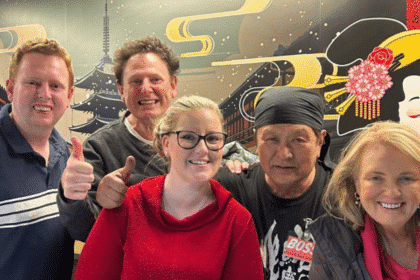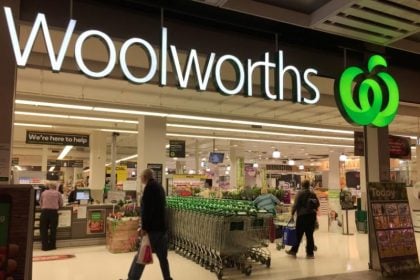We Are Social, the socially-led creative agency and Hootsuite have released Digital 2020, their latest annual report on social media and digital trends.
The report presents data from every country around the world, with key findings including an ongoing gender gap in social media use, global growth in the use of voice interfaces, and concerns around personal data security.
Internet: 4.54 billion people are now online, and half of internet users use ad blockers
4.54 billion people are now online, a year-on-year increase of 298 million, or 7 per cent —we are approaching internet penetration of 60 percent. However, roughly 3.2 billion people around the world remain offline.
The average internet user will spend 6 hours and 43 minutes per day online in 2020—more than 100 days in total. Globally, we will spend a collective 1.25 billion years online this year. People in the Philippines top the daily usage charts, spending an average of 9 hours and 45 minutes per day online, compared to just 4 hours and 22 minutes in Japan. Google and YouTube are once again the most visited websites, but Yahoo! still remains popular, with its website continuing to receive more traffic than Amazon.com and the world’s top ‘adult’ websites.
Data concerns are high globally, with almost two-thirds (64 per cent ) of internet users aged 16 to 64 saying they worry about how companies use their data (63 per cent in Australia). The report also shows that 56 per cent of online over 18s are concerned about fake news, while 49 per cent of internet users aged 16 to 64 use ad blockers every month.
Social media: 321 million new social media users, almost half the world is on social
The report finds that 49 per cent of the world’s total population (3.8 billion people) now uses social media, an increase of 321 million or 9 per cent from 2019. However, the available data indicate that women only account for 45 per cent of the world’s social media users.
Social media users in the Philippines are the most active, averaging 3 hours and 53 minutes on social every day. The global average for daily time spent on social media is 2 hours 24 minutes, accounting for more than one-third of our total internet time. In Australia, this is not just socialising but a way to earn a living; nearly a third (30 per cent ) of internet users aged 16-64 use social media platforms for work.
The world’s most-used social platforms are Facebook, YouTube, and WhatsApp. TikTok, in 7th place, now has 800 million monthly active users, with 500 million of these users in China. We have also seen growth in advertising audience numbers across many major social platforms. Facebook’s data show 1 per cent growth over the past quarter, while Instagram’s ad audience has risen by nearly 6 per cent in the same time period. The standout performer is Pinterest, whose advertising audience numbers jumped 12 per cent after it added a number of new countries to its advertising targeting options.
Mobile and ecommerce: 5G boosts internet speeds to +100Mbps
There are now 5.19 billion unique mobile users globally and for the first time, more than half (50.1 per cent ) of all internet time is spent on mobile devices. 5G is already making an impact, boosting the average mobile data connection speed in South Korea to more than 100Mbps, up from just 51Mbps this time last year. Mobile apps now account for 10 out of every 11 minutes we spend using mobile devices, with web browsing only responsible for 9 per cent of our mobile time.
When it comes to shopping, 74 per cent of internet users aged 16 to 64 purchased a product online in the past month, while 52 per cent made a purchase via a mobile phone. Mobile is now the top device for making online purchases. The world’s ecommerce users spent more than US$3 trillion on online B2C purchases in 2019, with shoppers spending an average of almost US$500 each on consumer goods alone – a year-on-year increase of 9 per cent . Australia is one of the top five global spenders in consumer goods online at US$1,157 average revenue per ecommerce user.
Meanwhile, digitally enabled consumer payments (payments made on the internet and mobile via smartphone apps) are on the rise, with an annual total of US$4.14 trillion in transactions in 2019, representing a 15 per cent increase year-on-year. Global cryptocurrency ownership is also on the rise — up from 5.6 per cent of internet users aged 16 to 64 a year ago to 7.4 per cent today.
Connected domestic life
Use of voice interfaces has grown over the past year. Today, 43.2 per cent of internet users aged 16 to 64 use voice search and voice commands on any device each month, up from 39.5 per cent this time last year. Australian use of voice interfaces has grown to 30 per cent of internet users aged 16 to 64, up from 25 per cent this time last year.
The number of homes around the world with at least one smart home device increased by a third over the past year to 134.1 million. On average, 11 per cent of internet users now have a smart home device. The UK and the US lead the way with the smartest homes, with a respective 17 per cent and 16 per cent of internet users aged 16 to 64 owning some form of smart home device.
Internet enabled entertainment
The internet is now firmly embedded within our TV habits, with two-thirds of the world’s internet users aged 16 to 64 now watching TV content streamed over the internet. Other sources of popular internet-enabled entertainment include streamed music services (70 per cent ) and podcasts (41 per cent ).
It’s not just passive entertainment; 4 in 5 internet users aged 16 to 64 say that they play video games each month. Internet users spend an average of 1 hour and 10 minutes a day using games consoles; 20 per cent say they have watched a live stream of others playing games in the past month, and 14 per cent have tuned into an esports tournament in the past 30 days.
Suzie Shaw, Managing Director, Sydney, We Are Social said: “This year’s report highlights what a sociable nation Australia is. We make ten monthly comments per user on Facebook, second only to the Philippines. Time spent on social in Australia is going up both in our personal and professional lives. We’re also a nation that’s clearly comfortable with flexing our online spending power.
“However, that’s just one side of the story. We’re also concerned about data misuse; likely as a result, our tendency to use ad blockers has grown. With more people in Australia spending time on social media, online shopping, gaming and using smart devices, privacy concerns are only going to increase. The next significant change may be people demanding more control over the data they are willing to give away.”
Henk Campher, VP of Corporate Marketing, Hootsuite commented: “This data confirms what many of us had suspected—that more people will continually be connected with more tools, on more devices and platforms, and through more channels, fundamentally changing how, as a society, we engage with one another. It’s one thing to make the tangible connection; as marketers and brands, we need to take the time to understand how the content we produce connects on a different level with our audience, and also how we make use of the tools we have to connect those that are yet to engage through the internet.”








